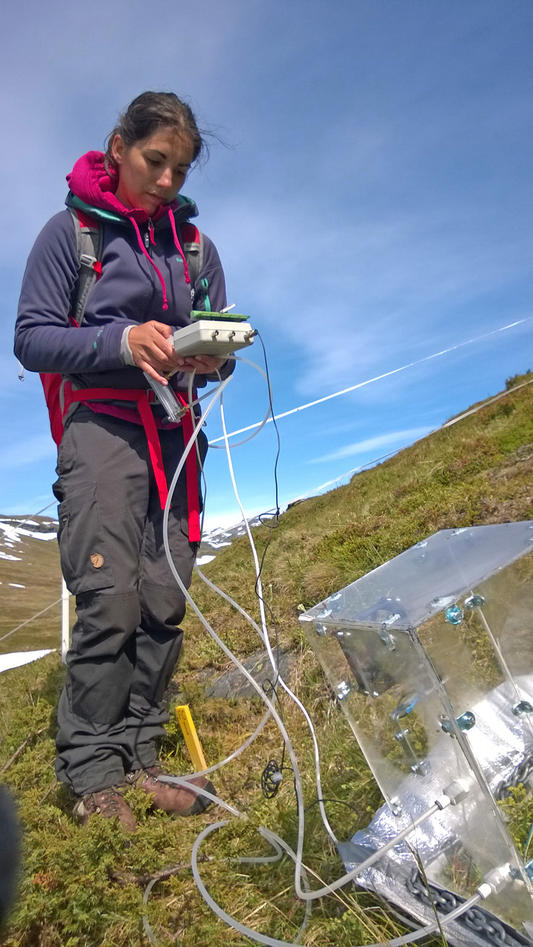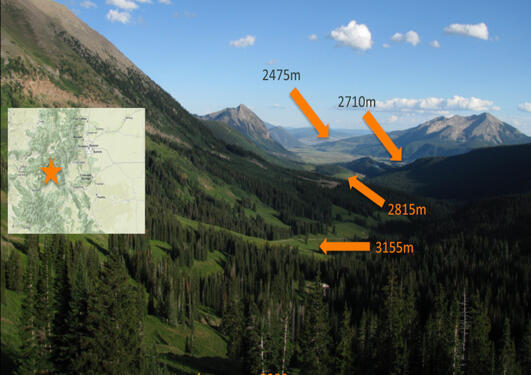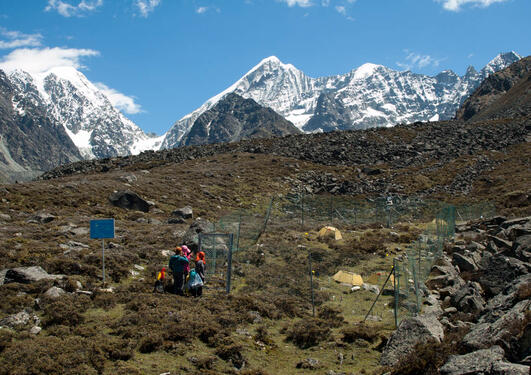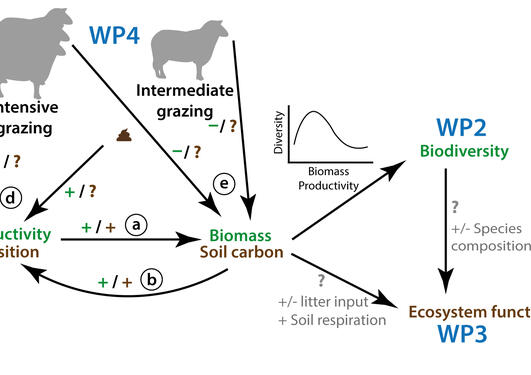Western Norway
Internship with the University of Bergen in western Norway

Hovedinnhold
Alpine regions contribute important ecosystem functions and services, yet at the same time are particularly vulnerable to ongoing climate change. We try to understand how the direct (e.g. warming), and indirect (e.g. changes in species interactions) elements of climate change will affect alpine systems.
We study these subjects in a climatic grid in the fjord landscape of western Norway, consisting of 12 sites along independent temperature and precipitation gradients. This way we can study vegetation dynamics in a warmer and wetter climate. At these sites, we have several ongoing experiments, FunCaB, INCLINE, LandPress, and THREE-D, in which you can join as an intern, gaining experience with climate-change experiments, field work, and plant ecology.
The FunCaB project, aims to understand alpine biodiversity and carbon dynamics under climate change. Within each site of the climatic grid, we do fully factorial removal experiments to assess the contributions of, and interactions between, the different functional groups of primary producers. In these experiments we assess how biodiversity, plant community composition, productivity carbon fluxes and stocks, and decomposition respond to the removal of one or more functional groups.
The INCLINE project will explore the indirect effects of climate change in detail by studying how changes in species interactions will affect the alpine plant community. At the alpine sites of the climatic grid, we have started a transplant and warming experiment to simulate species moving into mountain habitats as global climate warms, creating interactions between species that have not co-occurred previously. We investigate how the plant communities and selected species population dynamics are affected by novel competitors and warming.
The LandPress project studies how climate and land-use change affects biodiversity and natural resources in Norwegian coastal heathlands. In one of the world’s wettest drought experiments we measure drought responses on plant community composition, carbon fluxes, primary production, decomposition, and ecosystem functionalities along a strong successional gradient.
THREE-D investigates the effect of three global-change drivers on alpine biodiversity and ecosystem functioning. We simulate warmer climate (by transplanting), nitrogen deposition, and different levels of grazing and assess their single and combined effects on plant species composition and carbon cycling along a productivity gradient. 2019 is the first year of the THREE-D project and we will begin by setting up the experiment and measure climate data, vegetation composition, and decomposition as well as taking soil samples.
As a field assistant in these projects in western Norway you would be a part of the ongoing projects in our study system. You will gain practical training in all the different parts of running a climate-change experiment from experimental set up, to fieldwork and lab work. This would include experimental treatments such as removal of functional groups, set-up of open top chambers, and transplants. You could also be involved in the data collection of plant communities, demographical studies of alpine species, registration of seedlings, above- and below-ground biomass, floral traits, root traits, soil properties, pH, and soil moisture. With such big experiments, we also need some maintenance work, which could include fencing and work with climate loggers. Data processing in the lab and data documentation is also a major part of these projects.
Requirements:
You need to be a bachelor or master student in biology or a related subject. Students at the University of Bergen, The University Center in Svalbard, Norwegian University of Life Sciences, University of Arizona, University of British Columbia, Institute for Mountain Hazards and Environment in Chengdu, and University of Minnesota will be prioritised in the selection process.
The RECITE internship application deadline was 31st March 2019
To apply, please send a cover letter along with your CV and the names and contact information for two professional and/or academic referees to
Vigdis.Vandvik@uib.no and Dagmar.Egelkraut@uib.no
All the travel costs and living expenses will be covered by the RECITE project.



